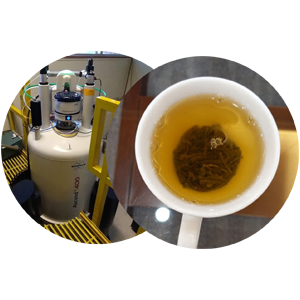

 Metabolomics is a cutting-edge area that his been widely applied in various areas, especially in human disease mechanisms and potential biomarker studies. However, due to the interdisciplinary requirement among data scientists, analytical chemists, and biochemists, the biomarker validation methods are not very well-developed which significantly limits the application of metabolomics especially for researchers with limited instrumentation and data science expertise. In this project, we are working on developing novel algorithms on metabolomics biomarker discovery and validation.
Metabolomics is a cutting-edge area that his been widely applied in various areas, especially in human disease mechanisms and potential biomarker studies. However, due to the interdisciplinary requirement among data scientists, analytical chemists, and biochemists, the biomarker validation methods are not very well-developed which significantly limits the application of metabolomics especially for researchers with limited instrumentation and data science expertise. In this project, we are working on developing novel algorithms on metabolomics biomarker discovery and validation.
 Our project will develop a metabolomics model to discover the sea anemones metabolomics response to combinational environmental stress. It is expected that the synergistic harmful effect of two or more environmental factors to the health of sea anemones will be discovered in metabolomics studies. Therefore, our study will help to predict the potential serious environmental issue when several regular environmental factors appear simultaneously even in relatively low concentrations.
Our project will develop a metabolomics model to discover the sea anemones metabolomics response to combinational environmental stress. It is expected that the synergistic harmful effect of two or more environmental factors to the health of sea anemones will be discovered in metabolomics studies. Therefore, our study will help to predict the potential serious environmental issue when several regular environmental factors appear simultaneously even in relatively low concentrations.
 Both green tea and Oolong tea extracts have been reported to have a significant effect of inhibiting breast cancer, however, the most effective compound in green tea, epigallocatechin gallate (EGCG) performs less effective in cancer suppression than the tea extract mixture which clearly indicates the unknown but important synergistic effect in tea extracts compounds exists. Metabolomics has been widely used to explore cancer mechanism, but few studies were applied in natural compounds synergistic effect area which is critical to the clinical applications of natural products. Our preliminary data showed that the compounds of different tea extracts profiling obtained by nuclear magnetic resonance (NMR), though have similarities, differ in concentrations and components which indicates a high probability to narrow down the effective compounds in tea extracts using their targeted metabolic pathways in breast cancer cell treatment
Both green tea and Oolong tea extracts have been reported to have a significant effect of inhibiting breast cancer, however, the most effective compound in green tea, epigallocatechin gallate (EGCG) performs less effective in cancer suppression than the tea extract mixture which clearly indicates the unknown but important synergistic effect in tea extracts compounds exists. Metabolomics has been widely used to explore cancer mechanism, but few studies were applied in natural compounds synergistic effect area which is critical to the clinical applications of natural products. Our preliminary data showed that the compounds of different tea extracts profiling obtained by nuclear magnetic resonance (NMR), though have similarities, differ in concentrations and components which indicates a high probability to narrow down the effective compounds in tea extracts using their targeted metabolic pathways in breast cancer cell treatment
© Florida Institute of Technology, All Rights Reserved